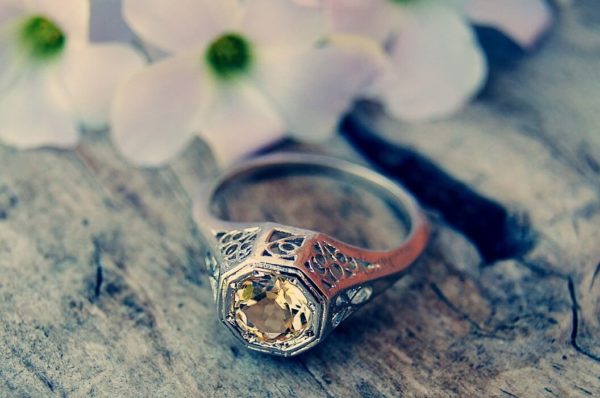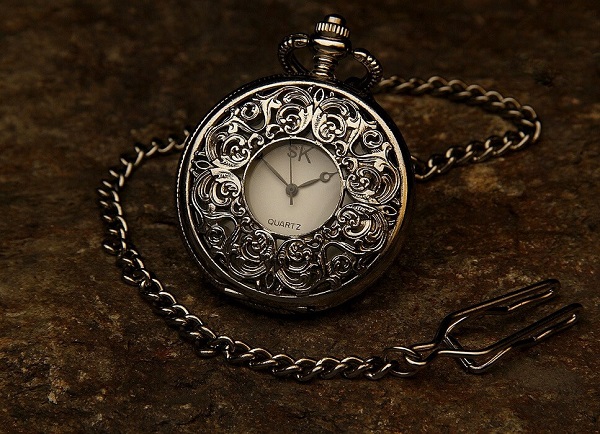Heirloom jewelry are not pieces that can be purchased at any jewelry store. They are family jewels that have been passed down from generation to generation. They are loaded with symbolism, history and culture, which makes them very special. Whether you have some heirloom jewelry or are thinking of creating one, here we will tell you everything you need to know about it.

What makes a piece an heirloom?
There are certain basic criteria that make jewelry pieces into heirloom jewelry:
- The piece of jewelry must be meaningful and have some history. This stems from the reason it was created. Generally, those who own heirloom jewelry consider it special because it belonged to a family member. Perhaps it was their grandmother’s engagement ring or a gift their mother received. The meaning of the piece is the most important aspect for any jewel to become heirloom jewelry.
- Any heirloom jewelry must have value, so not all jewelry pieces qualify as heirlooms. Ideally, the piece should be made of precious metals and stones, such as platinum, gold, diamonds, or pearls. This gives the piece a timeless value and, in fact, as it ages, its value increases.
- Heirloom jewelry are typically very beautiful and unique in design. This is not always the case, but because these pieces are carefully crafted and created to commemorate special occasions, they generally look stunning and are of very high quality.
A very famous example of an heirloom jewel is Princess Diana’s engagement ring. A piece of Ceylon blue sapphire now worn by her son’s wife, Kate Middleton. This ring meets all three criteria: meaning, value, and beauty, and it is highly likely that someone else in the family will wear it in the future.
Why have heirloom jewelry?
Everything is focused on its meaning and purpose. Heirloom jewelry are made for special occasions, such as an engagement, wedding, or special birthday. And they are usually of high quality.
These traditional jewels allow families to share history and tradition. They are meaningful pieces of jewelry that are passed down from generation to generation. So heirloom jewelry show family pride, bonds, and history.
Types of heirloom jewelry

Some ideal choices for traditional jewelry include diamond and pearl jewelry, gold or platinum pieces, valuable pendants or even a high-quality watch.
These are the most common types of heirloom jewelry:
Heirloom rings: These are usually engagement or wedding rings. They can also be promise rings or purity rings. They are made of diamonds and precious stones, such as sapphire and ruby.
Heirloom earrings: Earrings are excellent as heirloom jewelry, unlike rings, there is no problem with size. Whether they are pendants or diamond studs. Earrings are ideal because they are often timeless.
Heirloom bracelets: Bracelets come in a variety of styles and designs and are perfect as heirloom jewelry. They are easy to wear and rarely go out of style.
Heirloom brooches: This is one of the popular ones, and although they are no longer worn as in the past, they are still passed down as family jewelry. The brooches usually have precious stones and have unique designs.
Heirloom pendants or necklaces: Pendants do not go out of fashion easily and heirloom pieces are usually timeless.
Occasions for gifting heirloom jewelry
It is not every day that the decision is made to pass on a special jewel from one generation to another. It is common for this to coincide with a special occasion. There may be times when passing on heirloom jewelry is done for very specific situations. But, these are some of the most typical ones:
- Engagements and weddings: Without a doubt, these are milestones in the life of any person and an excellent time to receive an heirloom piece, especially a ring.
- A birth: The birth of a child is an emotional time for a family to see the next generation. The heirloom can be a gift for the mother or the child, depending on the piece and the intentions of the giver.
- Graduations, communions and special birthdays, such as 15th birthday.
How to create your heirloom jewelry?
It happens to many people that heirloom jewelry does not exist in their family. But, since it is a very special and meaningful tradition, you can start it yourself. You only have to take into account a series of elements so that they can truly be considered as heirloom jewelry.
First of all, any piece of jewelry, which is of high value, can be considered as an heirloom. They are jewels that you own and that are appreciated. If you wanted, you could obtain a piece for the purpose of turning it into an heirloom jewel and pass it on to a special person in the family.
Some main rules to follow when crafting heirloom jewelry:
- Choose pieces that are timeless and that you know they will be loved and worn for decades to come. Do not go for jewelry that will likely go out of style.
- Look for quality construction and resistant materials.
- Choose gemstones that are hard, such as sapphire, ruby, diamonds, and morganite. Less hard gemstones are fine too, but will be more easily damaged.
- Add a personal touch such as an engraving or choosing a gemstone that has meaning for your family. This will add to the history and value of the piece.
Ideas for transforming heirloom jewelry
If you have received a piece of heirloom jewelry and you don’t like it, what can you do? Besides keeping it locked up in a drawer forever, one option is to modify or transform it. This way you can adapt the piece for more to your style and taste. You can always try to turn your heirloom jewelry into a new design. This can be extreme or mild, but that depends on how much you want to change the piece.
Some ideas for transforming heirloom jewelry:
- Turning a brooch into a pendant
- Transforming a pendant into a modern ring
- A choker necklace can be shortened into a bracelet
- A dazzling gemstone can be surrounded by diamonds to create a sparkling halo.
- Changing the color of the metal
- Take the gemstones from the piece and turn them into something new, like a pair of earrings from a brooch.
If you decide to transform your heirloom jewelry, always think about who gave it to you. This is especially important if the person who gave you the piece is still alive. It is likely to create friction between the two. But, you do not have to worry.
Redesigning heirloom jewelry is adding a modern touch while still keeping history alive. Since precisely, it is not done with the intention of crushing the history of the piece, but to give it a new life. And thus be ready for the next generations.





ALFA